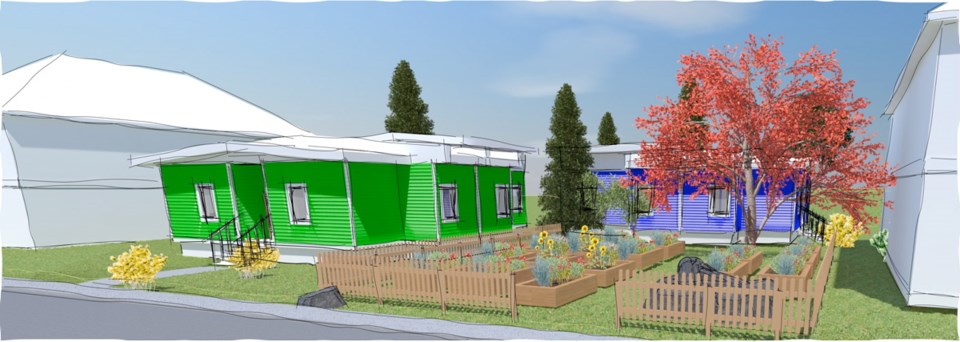A vacant city lot on Cook Street currently used for parking is being eyed for Victoria’s first micro-housing project.
City staff are recommending that the non-profit MicroHousing Victoria be allowed to apply for a temporary-use permit to build small dwellings for six people on a vacant, city-owned lot at 2582 Cook St. and are seeking authorization to negotiate the terms of a lease for the site.
Micro-houses are typically affordable homes, about the size of a large garden shed, designed to bridge the gap between homeless shelters and the development of permanent, affordable housing.
The sloping, 2,960-square-foot lot, which borders the Quadra/Hillside-Oaklands neighbourhoods, is currently used as a free parking lot for six residents as compensation for the loss of on-street parking when the city widened Cook Street.
Coun. Marianne Alto supports the proposal, which she says is more akin to collective living than the garden shed-sized dwellings traditionally associated with micro-housing projects.
The Cook Street project would house six people and have a shared kitchen, a dining area, a full bath and a half bath clustered within what would appear from the street to be a small (about 1,300 square feet) single-family home.
Alto notes that as more money is poured into shelters and permanent housing, there’s a gap between what can be done immediately and the time it takes to build permanent housing.
“I think micro-housing is uniquely positioned to fill that gap,” she said.
MicroHousing Victoria has not suggested a length of term for use of the lot, simply saying it wants to use it temporarily.
On its website, it says the temporary-use permits would be for three to five years, with the option of renewal.
It is proposed that city water, sewer and storm drains as well as hydro, Telus and cable connections be run to the site. City staff estimate the cost of their work at about $21,000.
MicroHousing Victoria’s goal is to have its first project move-in ready by September.
The staff report notes that while MicroHousing Victoria is a registered non-profit society, it is newly formed and does not have a track record of developing and operating non-profit housing. This would be its first project.
“There may be some risks associated with this, should council approve a temporary-use permit, if the society fails to properly manage the site or disbands during the period the use is operating for any reason,” the report says.
“If either risk occurred, the city may have to intervene in the operation of the site for an uncertain amount of time and related costs.”
Mayor Lisa Helps said the proposal is simply seeking permission to apply for the permit and is far from a done deal. She said if MicroHousing Victoria “does their job well,” their representatives will meet with the surrounding neighbourhood to discuss plans.
“From the city’s perspective, there will be a public process. They’ll need to do community consultation,” Helps said.
Coun. Geoff Young said he will not be able to support the application. “My prediction is it will be quite an expensive form of housing relative to the benefits and the quality of housing that is produced,” he said.
Young added that all building and fire-code regulations would have to be met, meaning the units likely would not be much more affordable than traditional assisted-housing units. He predicted that city costs are likely to be far more substantial than $21,000.
Young also said supports are needed for this type of housing to be successful.
“I don’t believe that changing the form of the housing to make it more permanent [than a tent] and provide running water, without addressing the issue of supports, can be a permanent solution,” Young said.



